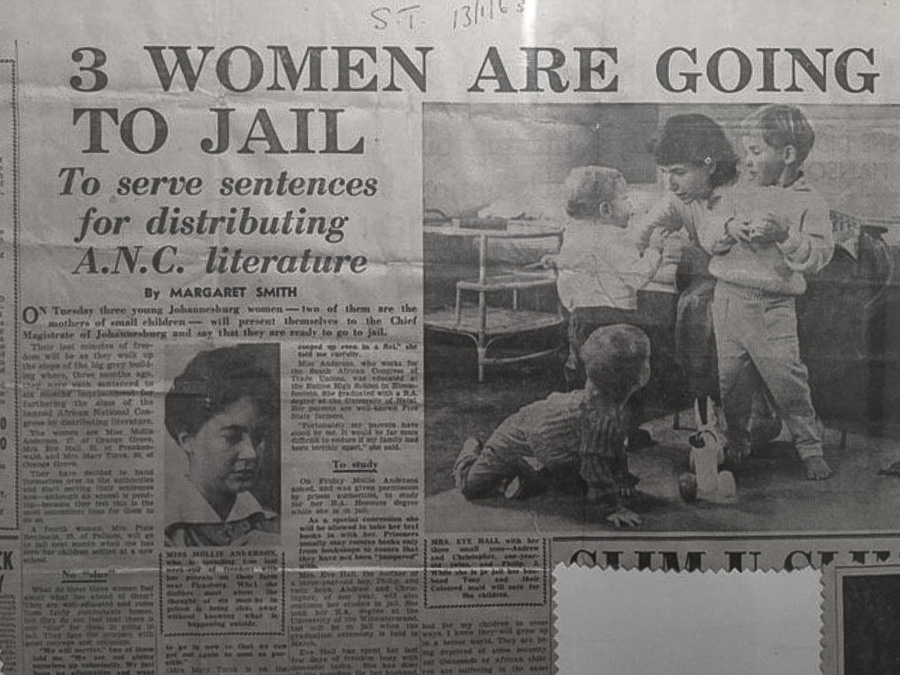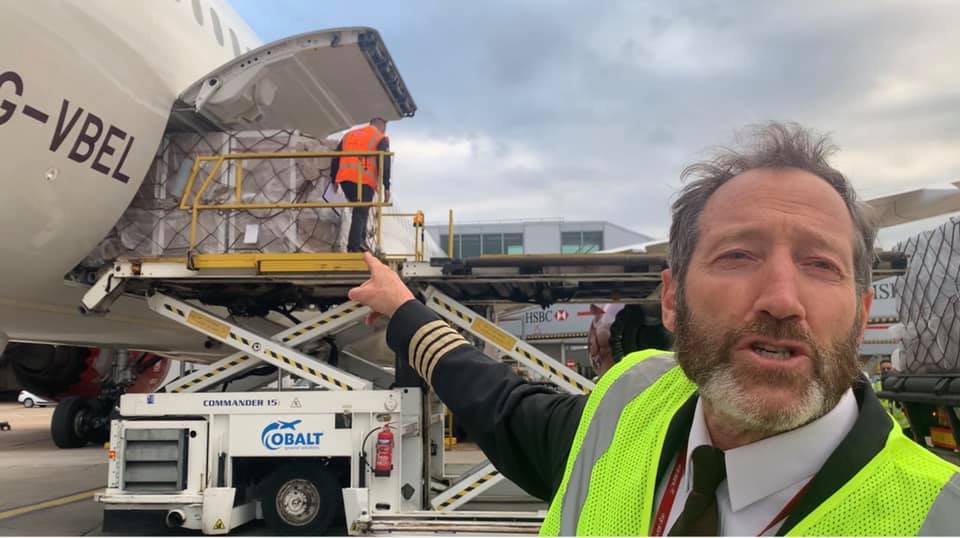.jpeg)
You may have seen Captain Chris Hall in the news recently for his fundraising to send oxygen generators to India to help with their Covid-19 response. What makes Chris such a fantastic ambassador for social justice? We talked to him about his family and their connection to Nelson Mandela.
Captain Chris Hall is well known at Virgin Atlantic for the epic fundraising adventures he leads most years, from extreme cycle rides across punishing terrain to sailing challenges in the Caribbean, raising hundreds of thousands of pounds for our partner charity WE.org in the process. But what’s less well known is where his unshakeable sense of social justice and desire to effect change comes from. It turns out South African-born Chris – who grew up during the turbulent apartheid years – learned the meaning of activism at an early age. Here’s his remarkable family story in his own words.
“The day after the 1960 Sharpeville massacre, my father Tony Hall – a South African journalist at the time – and mother Eve joined the African National Congress. For the next three years our home became a secret venue for the organisation, before in 1964, with the threat of jail hanging over them for being members of a banned organisation, they went into exile in Nairobi, taking me and my two brothers with them.
“My father had joined the Johannesburg Star in 1959, before moving to the Rand Daily Mail where he interviewed Nelson Mandela in hiding. The African National Congress had been banned by the white Apartheid government, and its leaders house arrested and not allowed to meet or speak publicly. Nelson Mandela, a Johannesburg lawyer and one of the top ANC leaders, had gone underground and slipped out of the country. He went to London, where he spoke in Trafalgar Square, and other capitals,
and addressed the Organisation of African Unity in Addis Ababa. The tour was to announce to the world that the ANC was alive and carrying on the freedom struggle, and by the end of it, Nelson Mandela was a very well known figure.
“He then slipped back into the country and embarked on a tour of South African centres to mobilise support, while disguised as a chauffeur dressed in a dark blue coat with brass buttons and a traditional chauffeur’s cap. His ‘employer’, grandly sitting in the back of the limousine, was a well known Johannesburg actor named Cecil Williams, who was a secret ANC supporter.
“Before they set off on the national tour, my father was contacted at his newspaper in Johannesburg by ANC friends and asked to come and interview Mandela at a secret destination. (They knew that, as a Congress movement member himself, he could be trusted not to reveal his hiding place, or leak it to the police.) He was picked up in an ordinary car, but with darkened windows, and driven to a small house, where the dignified figure of Nelson Mandela was waiting for him. As he pulled out his notebook, my father always remembered how in awe he was at that moment. Mandela’s bearing was so erect and commanding, his coat so brushed and the buttons shining, his hair neatly centre parted as it was in those days.

The front page of the Sunday Times SA from 1963. Eve Hall prepares to go to jail and is talking to Chris and his two brothers.
“He spoke of the plan for a three-day nationwide strike – about which the whole country was on tenterhooks – if the demand for a National Convention to work out a new deal for the people of South Africa was not met. Johannesburg was tense with expectation, and my dad went back to the Star newsroom full of excitement at the coming front page story. But he promised he would not mention where the interview took place or how Mandela looked – nothing that would give him away. He would only report in detail what had been discussed.
“Mandela carried on ‘chauffeuring’ all around the country, holding secret meetings and mobilising people in the provinces, but making few more, if any, public pronouncements to journalists. Not long after, a car pulled in front of them in Natal and armed men got out and arrested both Nelson Mandela and Cecil Williams. An informer had put the secret police on their trail. Cecil Williams was deported to Britain, and
for Nelson Mandela, it was the beginning of his decades in jail.
“A few months after my father’s undercover interview with Mandela, my mother Eve was arrested for promoting the objectives of the banned ANC and spent six months in prison. She was one of the first white women to be jailed. She was then fined for ‘insulting’ the apartheid state president in a protest leaflet that she signed. They were both listed as members of a banned organisation and could no longer work as journalists. Our whole family had to leave for a life of exile, around Africa and in the UK.
“Thirty years would pass before my father met Nelson Mandela again, at a birthday party for the famous singer Miriam Makeba, who had become known as ‘Mama Africa’. It was one of many parties to celebrate coming back home, after almost three decades of exile.”
“Years later, on 29 November 2003, an event called the 46664 Concert was held at Green Point Stadium, Cape Town. It was hosted by Mandela and its goal was to raise awareness of the spread of HIV/AIDS in South Africa. The day before, I was phoned at home by Crewing and asked if I could fly one of our Airbus 340-600s to Cape Town. I was told it had Richard, all his family and many pop stars on board, who were going to perform. We had the most amazing time for the few days we were there – all the crew were invited to the concert of course, but also to the pre-concert hosting of the VIPs by Mandela himself. Although I didn’t meet Mandela myself, it was one of those lucky coincidences and yet another trip that made me feel I was the luckiest pilot in the world, working for an airline that shared my and my family’s values.”

Chris watches some of the oxygen generators that his fundraising campaign bought, being loaded onto our flight to India. So far Chris has raised over £40,000. Find out more on his fundraising page
